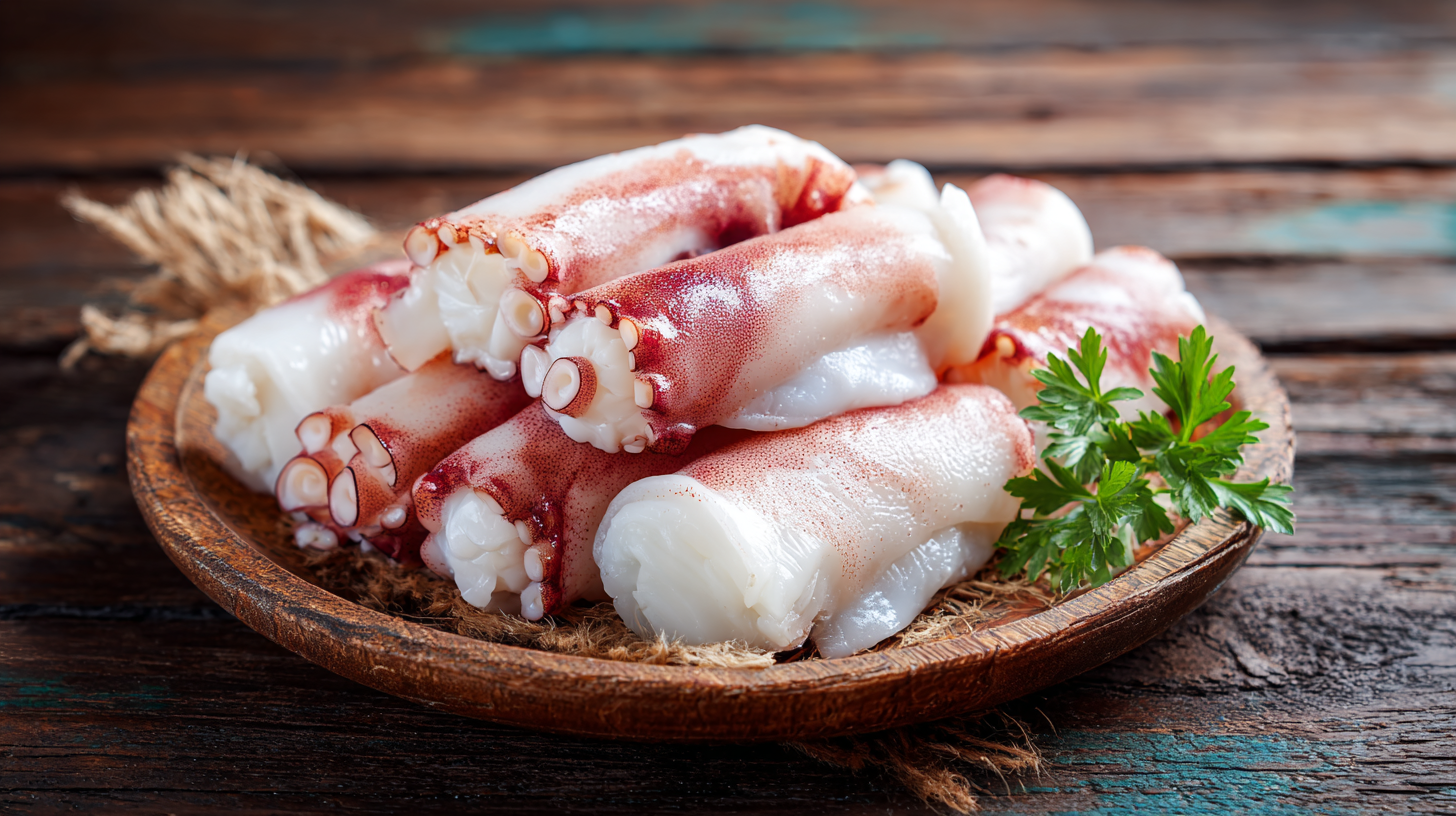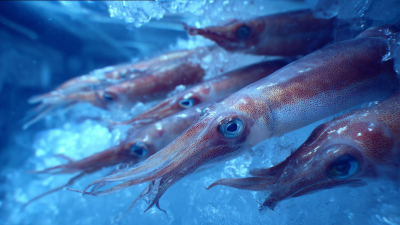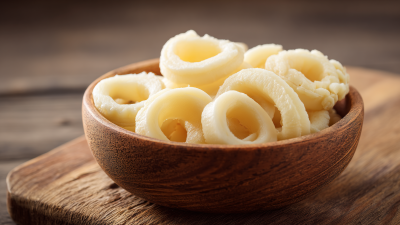Frozen Squid Meat has gained significant popularity in the culinary world, thanks to its versatile flavor profile and numerous health benefits. According to the Food and Agriculture Organization (FAO), global squid production reached approximately 4 million metric tons in 2020, with a substantial portion being processed and frozen for market distribution. This sector has seen continuous growth, reflecting a rising consumer demand for seafood that is both nutritious and convenient. Rich in high-quality protein, essential amino acids, and omega-3 fatty acids, Frozen Squid Meat serves as a valuable component of a balanced diet, aiding in heart health and overall wellness. As chefs and home cooks alike explore diverse cooking techniques—from grilling and stir-frying to including it in pasta dishes—Frozen Squid Meat not only offers culinary delights but also presents a sustainable option for seafood enthusiasts. The endless possibilities in preparing this delicacy make it a staple in kitchens around the globe.
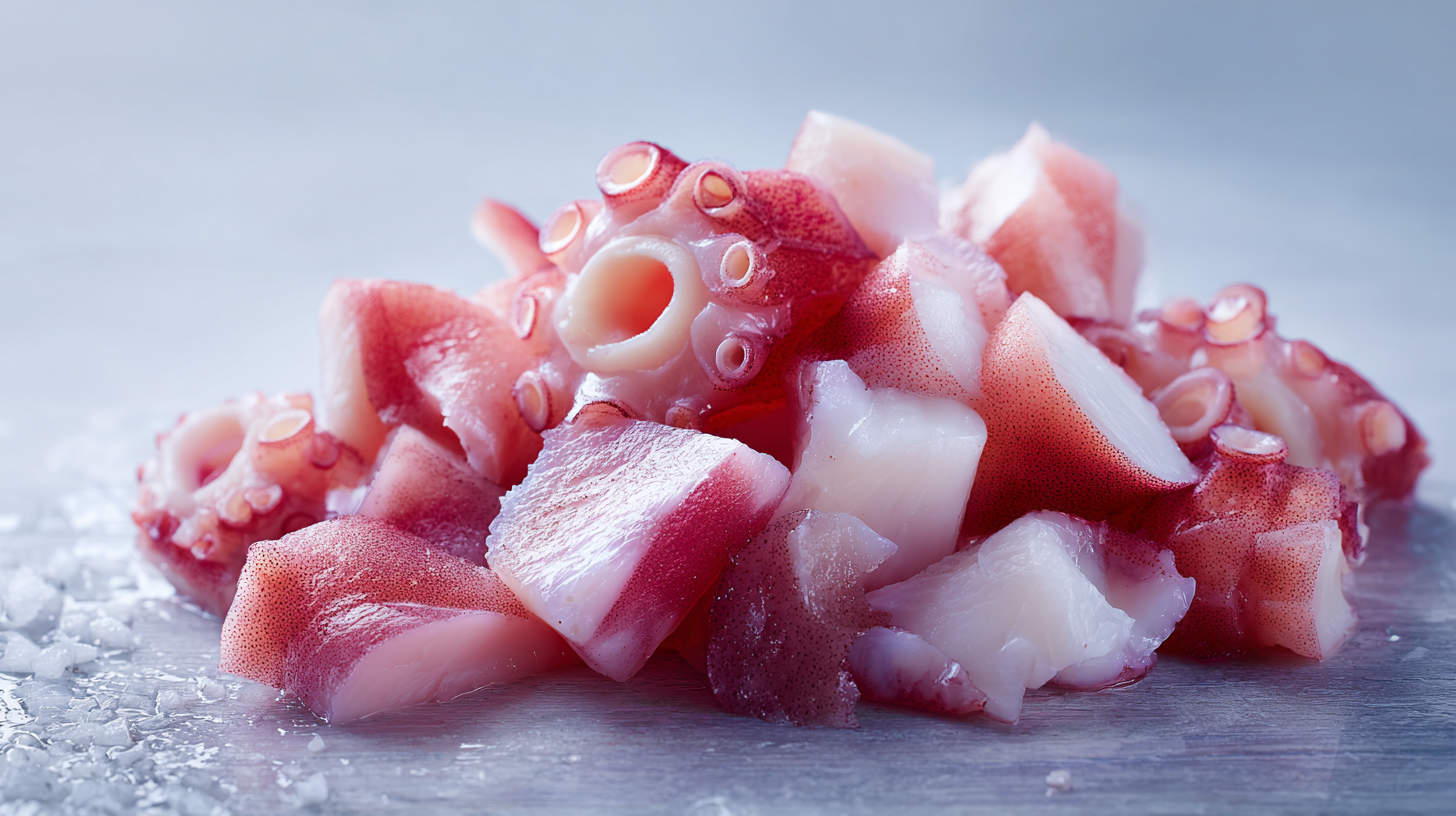
Frozen squid meat, particularly from the species Todarodes pacificus, offers a rich nutritional profile that caters to both culinary enthusiasts and health-conscious individuals. A comprehensive analysis of its nutritional composition reveals that squid meat is high in protein, containing approximately 18-20 grams per 100 grams of serving, which makes it an excellent source for muscle repair and growth. Additionally, squid is low in fat, with only about 1-2 grams per serving, and is also rich in essential nutrients such as omega-3 fatty acids, vitamin B12, and selenium, which play crucial roles in heart health and immune function.
Recent studies have explored the physicochemical and sensory properties of squid muscle when various tenderizing agents and durations are applied. These investigations highlight how processing methods can enhance the palatability of frozen squid, making it a delightful option in various cuisines. The textural improvements noted during these studies indicate the potential for higher consumer acceptance, especially in dishes where tenderness is paramount. Furthermore, the nutritional benefits of squid are complemented by its versatility in the kitchen, lending itself well to grilling, sautéing, or including in rich seafood stews, thus unlocking endless culinary possibilities.
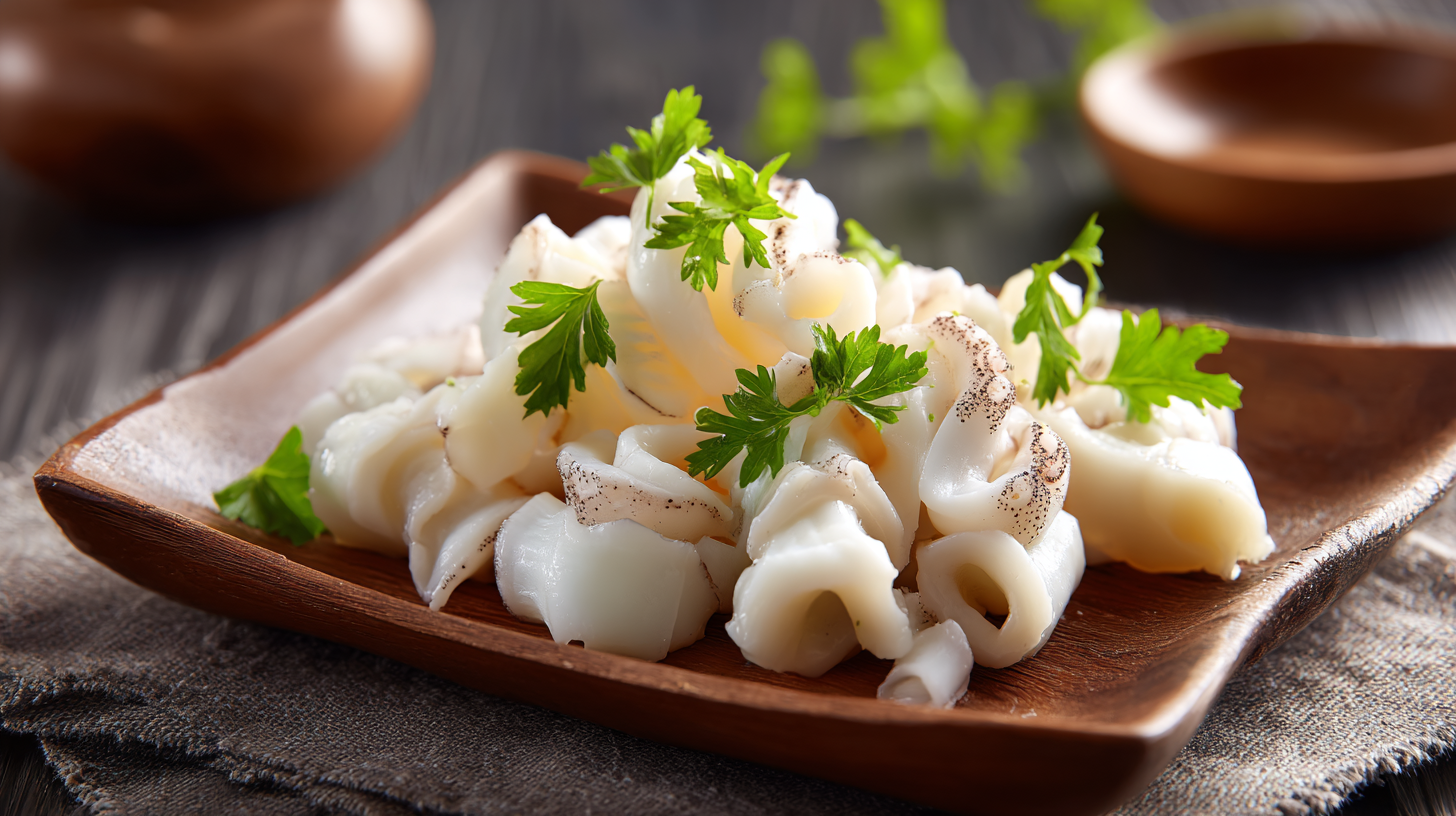 Frozen squid meat is a powerhouse of nutrition, particularly recognized for its
high protein content and rich supply of
omega-3 fatty acids. According to the Food and Agriculture Organization (FAO),
squid can contain as much as 17-20% protein, making it an excellent alternative for those
seeking to enhance their protein intake without consuming excessive levels of fat. Additionally, squid is loaded with omega-3 fatty acids,
which are essential for maintaining heart health. A study published in the American Journal of Clinical Nutrition emphasizes that these
fatty acids can help reduce inflammation, lower blood pressure, and improve overall cardiovascular function.
Frozen squid meat is a powerhouse of nutrition, particularly recognized for its
high protein content and rich supply of
omega-3 fatty acids. According to the Food and Agriculture Organization (FAO),
squid can contain as much as 17-20% protein, making it an excellent alternative for those
seeking to enhance their protein intake without consuming excessive levels of fat. Additionally, squid is loaded with omega-3 fatty acids,
which are essential for maintaining heart health. A study published in the American Journal of Clinical Nutrition emphasizes that these
fatty acids can help reduce inflammation, lower blood pressure, and improve overall cardiovascular function.
When incorporating frozen squid meat into your diet, it's essential to properly prepare it to retain its nutritional benefits. A few tips include
quickly thawing the squid under cold running water or in the refrigerator for several hours to preserve its texture. Cooking methods such as
grilling or boiling can help keep the delicate flavor intact while ensuring that the nutrients are not lost.
Additionally, aim to pair your squid dishes with vegetables, as this combination enhances
the meal's fiber content and provides a broader spectrum of nutrients. Consider adding a side of stir-fried greens, which pair well with the
umami flavors of squid while boosting the dish's overall nutritional profile. By making these simple adjustments, you can enjoy the delectable
taste of frozen squid meat while reaping its numerous health benefits.
Frozen squid is not only a convenient ingredient but also a versatile one that lends itself to various culinary applications across global cuisines. From the Mediterranean's signature calamari to Asian-style stir-fries, squid enriches dishes with its unique texture and ability to absorb flavors. In Italian cuisine, it’s commonly grilled or sautéed, often accompanied by garlic, olive oil, and fresh herbs, providing a delightful contrast to pasta or salads. In contrast, Asian culinary traditions celebrate the squid's versatility through methods like deep-frying, where it becomes crispy and is often served with tangy dipping sauces.
Around the world, chefs and home cooks alike embrace frozen squid for its quick preparation and adaptability. In Japanese cuisine, sliced squid is often used in sushi or sashimi, appreciated for its mild taste and tender bite. Meanwhile, in Spanish cooking, it finds its way into paella, adding depth and richness to the dish. With its ability to absorb spices and sauces, frozen squid can be seasoned and cooked in myriad ways, making it a staple in diverse dishes. Whether grilled, sautéed, or incorporated into soups and stews, frozen squid opens doors to endless culinary creativity.
The sourcing and sustainability of frozen squid are crucial factors in maintaining healthy marine ecosystems. Overfishing and unsustainable fishing practices have led to significant declines in squid populations, which can disrupt the balance of marine life. Many fisheries are now adopting more sustainable practices, such as implementing catch limits and marine protected areas. These methods not only preserve squid populations but also ensure that fishing practices do not adversely affect other marine species. Responsible sourcing prioritizes using squid that is harvested in a way that maintains the ecological integrity of their habitats.
Additionally, consumers are increasingly seeking transparency in the sourcing of frozen squid. Knowing the origins of their seafood and the sustainability practices of the fisheries is important to environmentally-conscious eaters. Certifications from organizations focusing on sustainable seafood can guide consumers in making informed choices. By opting for responsibly sourced frozen squid, consumers support fisheries that prioritize the health of marine ecosystems, ensuring that future generations can enjoy the culinary delights squid has to offer while protecting vital ocean resources.
| Nutritional Component | Amount per 100g | Culinary Uses | Sustainability Rating | Impact on Marine Ecosystem |
|---|---|---|---|---|
| Protein | 18g | Grilled, Fried, Stir-fried | B+ | Moderate, depends on sourcing |
| Fat | 2g | Sashimi, Soup, Salads | A | Low impact with responsible practices |
| Carbohydrates | 0g | Ceviche, Paella | B | Sustainable sourcing is key |
| Vitamins (B12, B6) | Varies | Stuffing, Pasta dishes | A- | Can affect local fish populations |
| Minerals (Iron, Selenium) | 15% DV | Gravies, Tacos | B+ | Requires careful regulation |
When considering the consumption of frozen squid meat, it's vital to recognize the potential risks associated with its consumption. Frozen seafood can sometimes harbor harmful bacteria or parasites if not handled properly. The thawing process, in particular, poses a risk if the squid is exposed to temperatures that allow these organisms to thrive. Additionally, there are concerns about the quality of frozen products, as they can suffer from freezer burn or improper storage conditions, leading to compromised taste and texture.
Moreover, consumers should be cautious about sourcing their frozen squid meat from reputable suppliers to avoid contamination with heavy metals or toxins, which can accumulate in seafood. The nutritional benefits of squid, such as being a source of protein and omega-3 fatty acids, can be overshadowed by these potential hazards. Therefore, ensuring safe preparation methods and being aware of where the product comes from is essential for a healthy dining experience.
